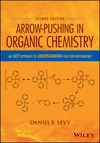A recent editorial in Chemical & Engineering News, along with an accompanying article, has had me thinking about the future and quality of our educational programs. The editorial entitled "Too Many Ph.D.s?" and the article "Doctoral Dilemma" both appeared in the January 31 issue and, not surprising, have received significant interest and responses. Presently, I am attending the Anaheim ACS meeting and, in light of the high caliber of science being presented around me, I feel a need to add my thoughts to this discussion.
I received my PhD under the supervision of Professor Satoru Masamune at the Massachusetts Institute of Technology. As part of my graduate studies, I was responsible for the design and execution of synthetic strategies leading to the total synthesis of Calyculin A. Those of you who may be familiar with this natural product will recall that it is a highly structurally diverse molecule with an aminosugar unit, a heterocycle, a spiroketal and a tetraene. The two fragments I worked on were the aminosugar and the tetraene. In addition, I designed a novel approach for the introduction of necessary chirality adjacent to the heterocycle. In all cases, my efforts began with an exhaustive study of the target structures as matched with the structures of available starting materials and availability of key reagents. At no time did I receive instructions as to how I was to approach my assigned tasks. Instead, I was given the freedom to execute on my ideas and drive these efforts as far as they could go based upon the available technology. I would not be honest if I suggested that each attempt worked as planned. However, each strategy, successful or not, allowed me opportunities to ask questions, find answers and evaluate results. My technical experience was a byproduct of the extensive chemical studies I pursued. After all, how could I answer questions without doing the experiments.
My undergraduate research activities, in contrast to those in graduate school, fell under the tutelage of Professor Henry Rapoport. In his labs, I was assigned specific tasks with generally understood protocols. My role was initially to support the efforts of a post doc. Later, I was assigned more independent studies allowing me to begin thinking about chemistry rather than simply following instructions. So, when comparing my undergraduate experiences to my graduate studies, Rapoport taught me how to do chemistry and Masamune provided me the opportunity to teach myself how to think about chemistry. Both experiences were essential to my academic and professional development.
Current Educational Programs - Are We Training Too Many Ph.D.s?
In the present job climate, there is no question that medicinal chemists have endured more than their fair share of problems. With the continuing trend of corporate takeovers and subsequent shutdowns, there is plenty of available talent with nowhere near enough new jobs being formed to absorb the unemployed. At the same time, graduate programs continue to produce a new generation of chemists eager to enter the workforce. In anticipation of the extremely high level of competition for any available position, I have heard it argued that some graduate student mentors are tailoring their programs to meet specific needs of companies. If true, this type of "apprenticeship" risks compromising the quality of the PhD degree in favor of the short term benefit of "grooming" students for entry into chosen professions.
As I discussed in the first section of this post, a complete education involves a combination of technical and intellectual training. Without a firmly established ability to generate and test independent hypotheses, an advanced education would be incomplete. After all, as "PhD" stands for "doctor of philosophy," is it an unfair expectation that those holding such a degree should be capable of generating and testing their philosophies - even when they differ from more conventional thinking? Without new thoughts and ideas, progress will come to a complete standstill. That having been said, I have not been in the academic setting for many years and cannot evaluate the current trends beyond what is reported. I can only hope that the quality of advanced education today remains as high as it was when I received my PhD.
Returning to the question of whether we are training too many PhDs, the ability to think is not restricted to an individual field of thought. If one is capable of imagining, endless possibilities become available. This applies not only to the advancement of technology, but also to professional development. Yes, the job market is unstable. Yes, there are few available jobs. Yes, there are many unemployed chemists. However, there are numerous areas where creativity can lead to exciting career options - even if not along envisioned paths. As I have communicated throughout this blog, the key to success is not along one path. Today, it is essential to continually learn new skills, reinvent oneself and be adaptable to opportunities presented. From this philosophy, it is not the number of PhDs that we need be concerned about, but rather what we are preparing our PhDs to do. If we train PhDs to think creatively, as I believe we do, there is no limit to what can be accomplished.
Have a good weekend
3 days ago




